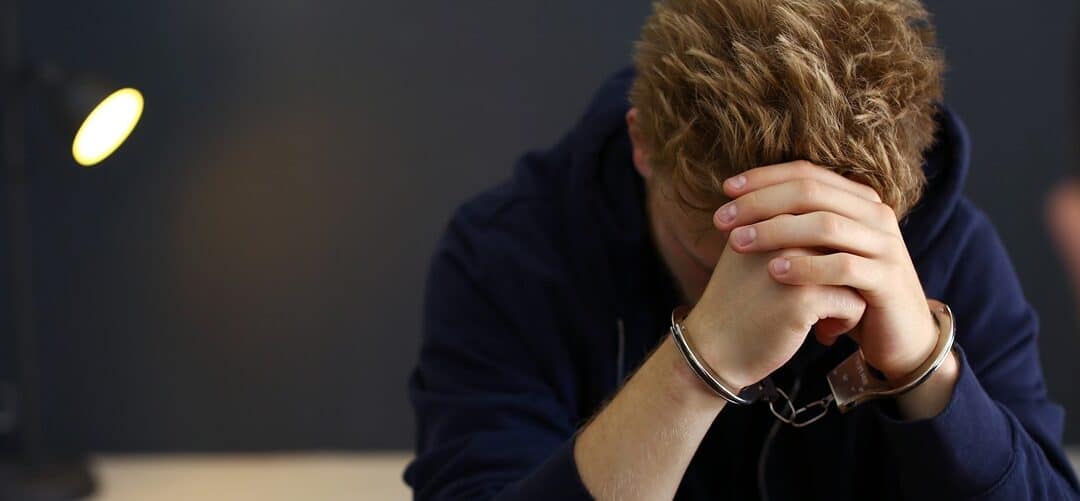What Happens If I Get a DUI While on Probation?
If you are on probation and charged with a DUI, it can have severe consequences for your probation status. When you are on probation, you are required to comply with specific conditions set by the court. These conditions usually include not committing any new criminal offenses.
Getting charged with a DUI while on probation would be considered a violation of your probation terms.
The consequences for a DUI while on probation can vary depending on several factors, such as the specific terms of your probation, your past criminal record, and the state where you were charged.
It is essential to consult with an attorney if facing a DUI charge while on probation to understand your rights and the potential consequences.
This article will cover the following topics:
- The Basics of Probation in Arizona
- Types of Probation
- Breach of Probation Terms
- Possible Defense Strategies When Receiving a DUI While on Probation
- Possible Defense Strategies for DUIs on Probation
The Basics of Probation in Arizona
Probation in Arizona is a form of supervision that allows individuals to serve their sentence outside of jail or prison. It is typically granted to nonviolent offenders who pose a low risk to society.
When a person is placed on probation, they must comply with specific conditions set by the court.
These conditions may include the following:
- Regularly reporting to a probation officer
- Maintaining employment
- Attending counseling or treatment programs
- Refraining from drug and alcohol use
- Avoiding contact with certain individuals
Failure to comply with these conditions can result in probation violations and potentially lead to probation revocation.
The length of probation can vary depending on the offense committed, with some terms lasting up to five years or more.
While on probation, individuals must demonstrate good behavior and comply with all legal requirements.
Probation can offer individuals a second chance to rehabilitate themselves and reintegrate into society while still being held accountable for their actions.
Types of Probation
Probation can be categorized into supervised, unsupervised, and intensive forms.
When on supervised probation, individuals must make routine visits to a probation office, a typical requirement for those who have violated § 28-1381 (DUI) or 28-1382 (Extreme DUI).
However, exceptions can be made if the court deems supervised probation unnecessary or if the respective court lacks supervisory probation services. These check-ins might involve undergoing specific evaluations, like alcohol and drug tests, to ensure adherence to probationary guidelines.
As the name suggests, unsupervised probation doesn’t require regular check-ins with a probation officer.
The primary expectation is to refrain from legal infractions during the probationary term.
As long as one avoids arrest or charges during this time, there’s no need for court appearances.
On the other hand, intensive probation, as outlined under § 13-913, might come with stringent requirements, possibly including restitution payments.
The duration of probation can differ based on the seriousness of the offense.
For instance, a Class 2 misdemeanor might result in a two-year probation, while a Class 1 misdemeanor could lead to a three-year term.
For lesser severe felonies, like class 5 or 6, the probationary period is typically three years. But a class 4 felony might warrant a four-year probation.
While certain offenses exclude the possibility of probation, DUIs are generally exempt unless they coincide with a crime against minors or a severe violent offense.

Breach of Probation Terms
When an individual fails to adhere to the set conditions of their probation, it’s termed a breach of probation.
The specifics of the probation, as outlined by the court, include abstaining from alcohol or not committing another offense while on probation.
To confirm a breach of probation, the prosecutor only has to demonstrate the violation using a majority of evidence. This evidence threshold is less than the “beyond reasonable doubt” criterion required for the initial conviction.
Consequently, the court holds the right to withdraw your probation and either send you back to jail or impose more stringent probation conditions.
For instance, if you were initially granted probation without monitoring following a violation, the court might impose conditions like house confinement where you would need to inform your probation officer about your daily movements, like heading to or coming back from work.

Consequences of Committing a Subsequent DUI Offense While on Probation
Furthermore, being caught driving under the influence within 7 years following an initial DUI conviction may lead to charges for subsequent DUI offenses.
Arizona has stringent DUI regulations, and legal authorities do not take lightly to DUIs committed during probation. As such, they often pursue the harshest penalties.
Being convicted of a second DUI while on probation will subject you to a minimum of 30 days to a potential 180 days in jail, the fitting of an ignition interlock system in your vehicle, and fines exceeding $3,000.
Other repercussions include a year-long license suspension, mandatory substance screening and rehabilitation, and community service.
On your third DUI or any after, expect a jail term of no less than 4 months and fines starting from $4,000.
For individuals found guilty of severe DUI offenses and with three or more prior DUI-related incidents within 7 years, probation will only become an option after serving a minimum of 8 months in prison.
Possible Defense Strategies When Receiving a DUI While on Probation
When facing a DUI charge while on probation, exploring possible defense strategies to minimize the consequences is crucial.
One strategy is to challenge the validity of the initial stop. If the police officer lacked reasonable suspicion or probable cause to pull the defendant over, any evidence obtained after that may be deemed inadmissible.
Another approach is to question the accuracy of the breathalyzer or blood test results. A skilled attorney may be able to demonstrate that the testing equipment was not properly calibrated or maintained, leading to inaccurate readings.
Additionally, it is essential to review the probation terms to determine if there were any violations.
If the defendant can prove compliance with all probation conditions, it may weaken the prosecution’s case.
Moreover, the defense could argue that the law enforcement officer did not follow proper protocol during the arrest, violating the defendant’s rights. By employing these defense strategies and working with a knowledgeable attorney, individuals charged with a DUI while on probation will have a more substantial chance of achieving a favorable outcome.
Next Steps: Protecting Your Rights and Future

Arja Shah has experience in DUI cases and can provide vital guidance and protection of your rights throughout the legal process. She can evaluate the circumstances of your arrest and build a strong defense strategy to help minimize the consequences.
Don’t let a DUI define your future—contact the Shah Law Firm today and receive a free consultation at (602) 560-7408.
